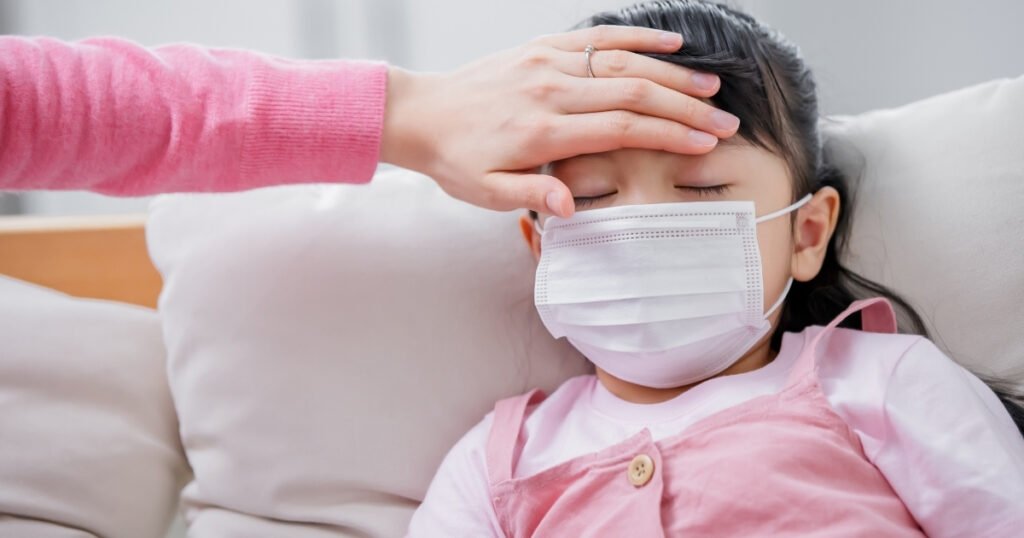Dengue Fever in Children
Dengue Fever, in Kids: A Guide for Parents on Understanding, Preventing and Caring for it
Being a pediatrician based in India I know the concern that dengue fever can bring to parents. This illness transmitted by mosquitoes is quite common during and after the season with children being more susceptible. Therefore, it’s crucial for parents to be well informed and prepared to safeguard their children’s. Let’s explore, all you need to understand about dengue in children – from symptoms and prevention to treatment choices and when to seek help.
What is Dengue Fever?
Dengue fever is a disease spread by Aedes mosquitoes the annoying insects responsible for transmitting chikungunya and Zika. These mosquitoes are most active during daylight hours in the morning and late afternoon.
How Do Kids get Dengue?
When an infected Aedes mosquito bites a child the dengue virus enters their bloodstream. Consequently, the virus replicates, resulting in symptoms. It’s essential to understand that dengue is NOT transmitted directly from person to person.
Signs and Symptoms in Children; What Parents Should Watch Out For (Dengue Fever in Children)
Symptoms of dengue in children may manifest differently compared to adults. At times it could be mild and easily confused, with a cold or flu.
It’s important to be aware of the signs:
- Fever: Usually the first sign, lasting 2 7 days.
- Intense headache: Kids might mention pain, around their eyes.
- Skin rash: Appears a days after the fever kicks in.
- Body pains: Muscles and joints can ache, earning it the nickname “breakbone fever.”
- Other symptoms: Nausea, vomiting, stomach discomfort, loss of appetite and fatigue.
Warning Signs: When to Get Immediate Medical Help (Dengue Fever in Children)
Though most cases of dengue are mild some can develop into forms like dengue hemorrhagic fever or dengue shock syndrome. These are conditions that need medical attention. If your child shows any of these signs take them to the hospital:
- Severe stomach pain
- Vomiting
- Bleeding from gums or nose
- Breathing difficulties
- Extreme tiredness or excessive sleepiness
Treatment: Aiding Your Childs Recovery (Dengue Fever in Children)
Many cases of dengue can be handled at home with supportive care. Here are some ways to help your child feel better.
- Rest: Encourage your child to get plenty of rest.
- Fluids: Provide fluids such, as water, coconut water and oral rehydration solutions to prevent dehydration.
- Fever Management: Opt, for paracetamol to control fever. Avoid using other medication as they can heighten the risk of bleeding.
- Pain Alleviation: If your child experiences body aches, administer paracetamol as necessary.
Prevention Measures; The Ultimate Guard Against Dengue
Prevention plays a role in India where dengue is widespread. Follow these guidelines to safeguard your loved ones:
- Eliminate Breeding Grounds: Aedes mosquitoes in water. Empty containers that collect water, clean coolers and flowerpots and change the water in birdbaths.
- Mosquito Repellents Usage: Apply repellents on exposed skin during daytime hours. Opt for products for children.
- Protective Dressing: Dress kids in sleeved shirts and pants during peak activity hours.
- Utilize Mosquito Nets: Employ nets while sleeping, for infants and young children.
Frequently Asked Questions (FAQs)
Q1. Is dengue fever prevalent in India?
Indeed, dengue fever is quite common in India during and post the monsoon season.
Q2. Can a child contract dengue more than once?
Yes, it’s possible for a child to experience occurrences of dengue as there are strains of the virus.
Q3. Is there a vaccine, for dengue?
Yes, there is indeed a dengue vaccine, in India. It is specifically recommended for children aged 9 and above who have previously had a confirmed case of dengue.
Q4. Is dengue potentially fatal?
Although most instances are mild severe cases of dengue can pose a life-threatening risk. This underscores the importance of seeking help upon noticing any warning signs.
Q5. How can I safeguard my child against dengue?
The key is to focus on preventing bites by eliminating breeding grounds using repellents and dressing in clothing.
Just bear in mind: Dengue warrants attention. Through awareness preventive measures and timely medical intervention when necessary, we can ensure the safety of our children and aid their swift recovery.
Book an appointment: Best Hospital in White Field
Mobile: 8095 37 0000
Telephone: 080 2503 4444, 080 2503 4455
Email: info@svasthahospital.com
Remember, you’re not alone on this journey. At Svastha, we’re all about helping you. Let’s walk this path together, one step at a time. Best hospital in whitefield.

